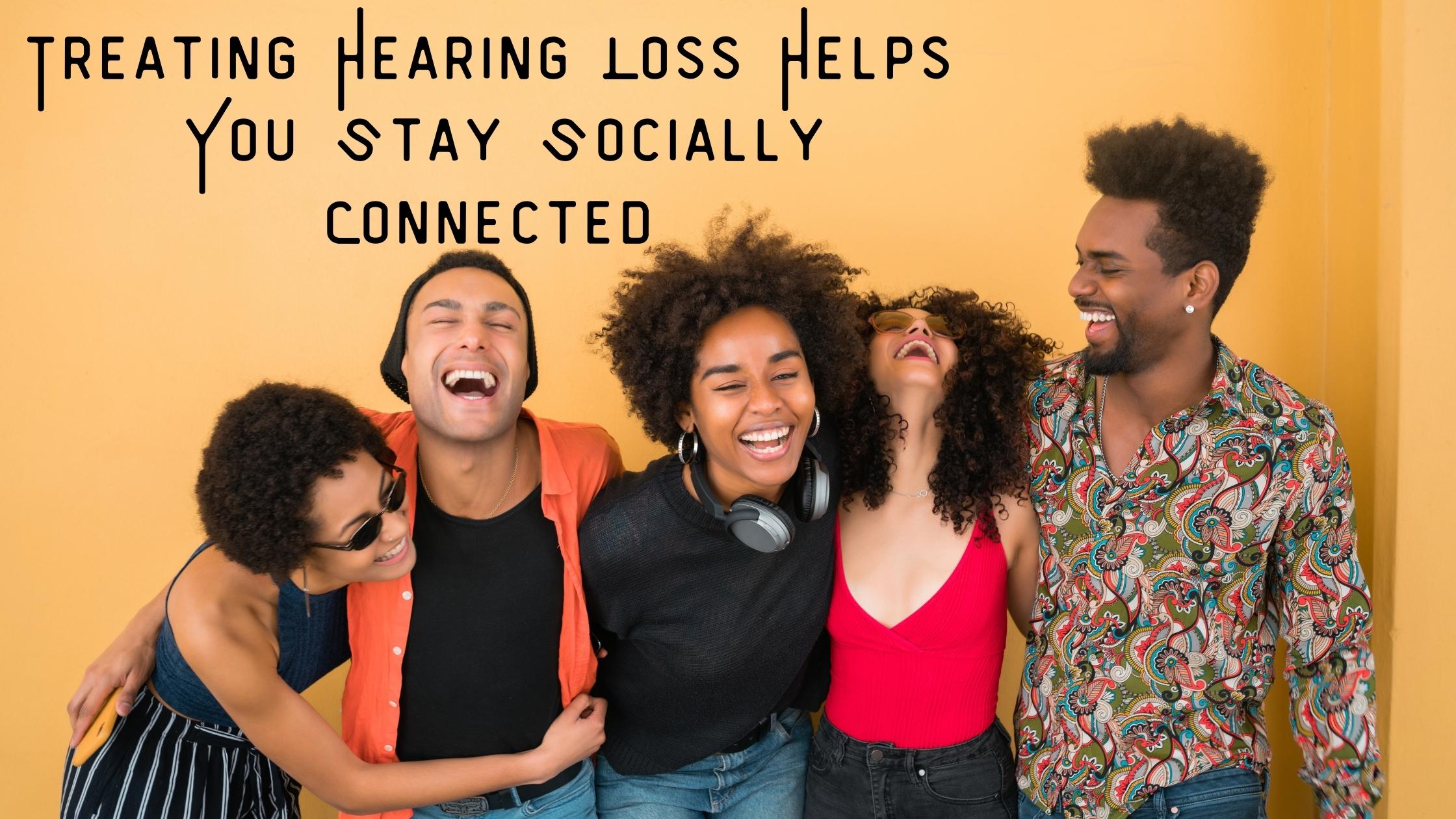One of the challenges facing seniors is how to stay socially connected as the years go by. Many of us found our strongest social connections through work and school activities. Although we might not think of all of our coworkers as personal friends, we engage with them socially in the process of working on projects and small talk before and after the working day. Even for those who don’t work outside the home, children’s lives can provide a social setting, as well. Whether at a Parent-Teacher Association meeting or showing up as a supportive fan at a soccer game, our children’s lives become a social environment that builds community.
However, seniors after retirement often lose these social connections. With children out of the house and no workplace to frequent, social connection becomes an active intention for many people in retirement. Although there are many outlets for these social connections, hearing loss can get in the way of easily integrating into the community. If you have a loved one with hearing loss, don’t forget that treatment is not only a way to make conversation and everyday life easier. That treatment can help your loved one build-essential bonds with the community, so your assistance extends far beyond the family.
The Path of Social Isolation
Those who have untreated hearing loss tend to have higher rates of mental health issues, as well. Whether it is reported as anxiety or depression, these conditions can be directly or indirectly related to hearing loss. For some, the feeling of frustration or embarrassment in social settings is enough to cause anxiety or depression. When communication is difficult, some people fret about those situations long before they occur, and they might feel disappointed or sad after they take place.
Something even more troubling takes place for some people with hearing loss. When the frustration, embarrassment, anxiety, and depression build to a certain point, they might decide it’s not worth the trouble of engaging in social groups at all. This decision might happen consciously in one distraught moment, or it can happen gradually with time. Declining invitations to parties where it will be difficult to hear might be the first step. Deciding not to go out to dinner where the background noise is too loud might be another step. Many people with hearing loss even avoid going out to take care of errands and business around town where they might run into someone who wants to chat. The simplest conversation with a bank teller or grocery cashier might become confusing and lead to some troubling miscommunication, so some people avoid these encounters, as well.
Social Isolation and Health
One of the problems with this pattern is that social isolation is linked not only to increased rates of depression and anxiety but also to other negative health outcomes. The exercise we get when we are out and about is essential movement and activity for our bodies. Without that baseline of exercise, the body can suffer from physical health problems ranging from obesity to cardiovascular disease. In addition, the brain thrives on stimulation from hearing language from others. When a person becomes socially isolated, that lack of language exposure can lead to cognitive decline, as well. Though the brain is not a muscle, it’s almost as if it needs exercise to be able to thrive, and conversations often provide that workout.
Treatment for Hearing Loss and Social Connection
The good news is that all of these patterns can be reversed when a person receives treatment for hearing loss. Hearing assistance makes it possible for many people to communicate more easily sets off a domino rally of positive effects on health and wellbeing. Rather than avoiding social encounters, those with hearing aids tend to be more willing to connect with their communities through social events and everyday encounters.
With this feeling of connection and support, mental health tends to improve, particularly in the first months after receiving hearing aids. If you have a loved one with hearing loss and are worried about social isolation, why not help them get a hearing test? That diagnosis is the first step in the direction of treatment!

